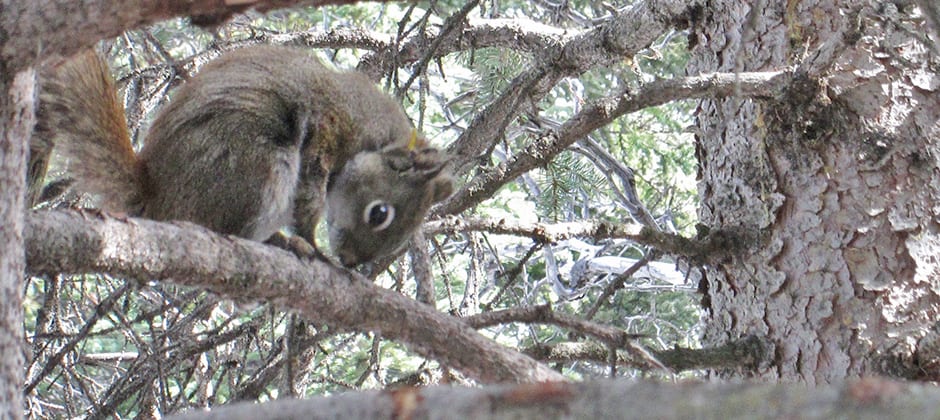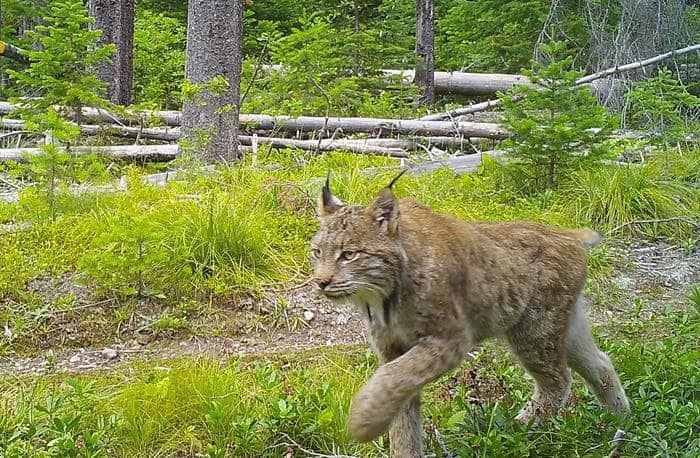Share this article
A red squirrel dilemma: should they stay or should they go?
TWS member April Martinig can relate to red squirrels. Finding an apartment in Edmonton, Alberta is about as tough as it is for a squirrel in Yukon to find a place to nest.
“They live in a system where the population is really saturated,” said Martinig, a PhD student at the University of Alberta who is studying species dispersal for her thesis. “Where I live, it’s crazy hard to get an apartment. Nothing opens. There are no vacancies anywhere. Squirrels face the same thing.”
North American red squirrels (Tamiasciurus hudsonicus) turned out to be an ideal species for Martinig to look at while studying dispersal because of their unique, solitary living situation. Unlike other species that live together, red squirrels live independently. Even offspring only remain where they were born for 70 days. Then, Martinig said, “you need to find your own place to live.”
That’s not easy in a saturated population, prompting many squirrels to set out for new territories on their own. “How well they succeed depends a lot on sex,” said Martinig, the lead author on a recent study published in Ecology Letters, and it can have ramifications for the next generation, too.
“For squirrels, if you lose your territory you’re going to die,” she said. “There’s no ifs, ands or buts about it. They’re actually extremely territorial in that sense.”
Martinig looked at 29 years of census data for red squirrels in territories in Yukon. Researchers were able to tag every single resident squirrel, so Martinig could determine if squirrels they attracted to traps baited with peanut butter were residents, or if they were immigrants from other territories.
She found that males that move to another population live longer and sire more offspring than those that stay. Their male offspring are more successful, too. The opposite proved true for females. Those that stayed lived longer and bore more offspring, and their female offspring were more successful.
“There’s actually an intergenerational effect from what your parents did,” Martinig said. “Theories said that shouldn’t happen.”
Male squirrels benefit from moving away, she said, because they no longer have to compete with their siblings for mates and territories — and because female squirrels prefer to mate with newcomers. Female squirrels, on the other hand, benefit from support from nearby family, so they do better by staying close to home.
Movement is crucial to a species’ ability to persist, Martinig said, and although red squirrels aren’t threatened in the Yukon, that could change as invasive gray squirrels (Sciurus carolinensis) move north from the United States and compete.
“We need to know how individuals move and what their success is thereafter,” she said.
Header Image: By 70 days of age, red squirrels set out on their own. ©April Martinig








